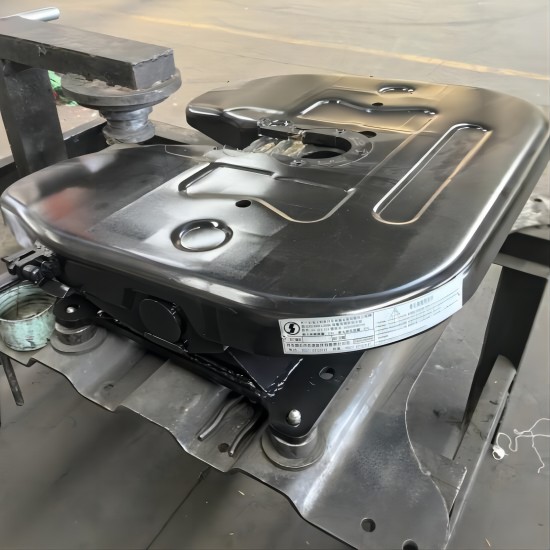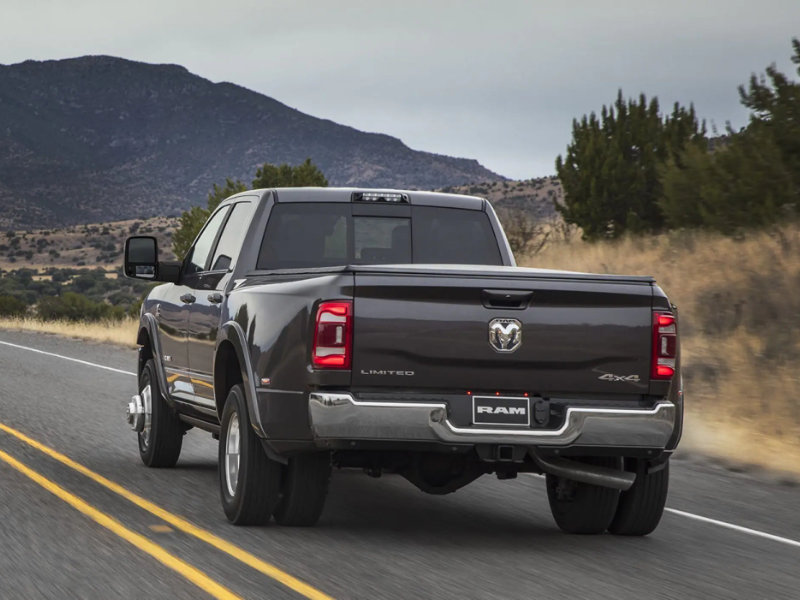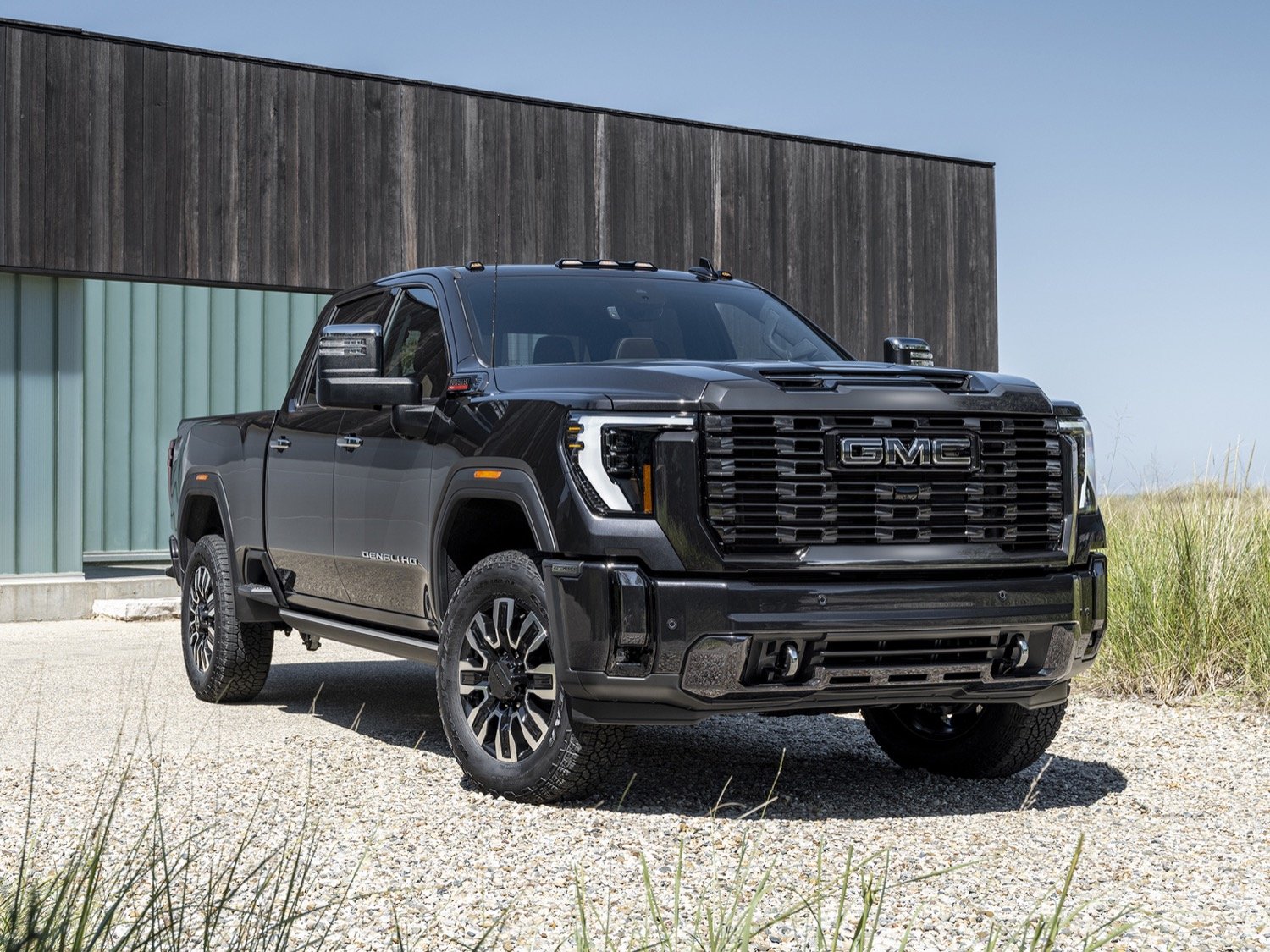Heavy Duty Trucks For Sale Near Me: Your Ultimate Guide to Finding the Right Rig types.truckstrend.com
The backbone of modern industry, heavy-duty trucks are the workhorses that move our economy. From transporting goods across continents to building our infrastructure, managing waste, and recovering disabled vehicles, these powerful machines are indispensable. For businesses and owner-operators alike, finding the right heavy-duty truck isn’t just a purchase; it’s a strategic investment. The quest often begins with a simple, yet crucial, search: "Heavy Duty Trucks For Sale Near Me."
This article serves as your comprehensive guide to navigating the market for heavy-duty trucks. We’ll delve into what defines these formidable vehicles, why proximity matters in your search, the diverse types available, and a step-by-step process for making an informed purchase. Whether you’re expanding your fleet, replacing an aging asset, or starting a new venture, understanding the local market and making a well-considered choice can significantly impact your operational efficiency and bottom line.
Heavy Duty Trucks For Sale Near Me: Your Ultimate Guide to Finding the Right Rig
Understanding Heavy Duty Trucks: What Are They?
Before diving into the "near me" aspect, it’s essential to define what constitutes a heavy-duty truck. In the United States, trucks are categorized by their Gross Vehicle Weight Rating (GVWR), which is the maximum operating weight of the vehicle as specified by the manufacturer, including the vehicle’s chassis, body, engine, fuel, accessories, driver, passengers, and cargo. Heavy-duty trucks primarily fall into:
- Class 7 Trucks: With a GVWR ranging from 26,001 to 33,000 pounds (11,794 to 14,969 kg). These often include single-unit dump trucks, large refuse trucks, furniture movers, and smaller tractor units.
- Class 8 Trucks: The largest classification, with a GVWR exceeding 33,001 pounds (14,969 kg). This category encompasses the iconic semi-trucks (tractor units) that pull trailers, as well as concrete mixers, severe-duty dump trucks, refuse haulers, and specialized vocational trucks.
What sets these trucks apart is their robust construction, powerful engines (often diesel, with high torque output), heavy-duty transmissions, durable chassis, and advanced braking systems designed to handle immense loads over long distances or challenging terrains. They are built for endurance, performance, and the rigorous demands of commercial operations.
Why "Near Me" Matters When Buying a Heavy Duty Truck

The digital age has made it possible to browse inventory from anywhere in the world, but when it comes to heavy-duty trucks, a local search ("near me") offers significant advantages that often outweigh the allure of a distant bargain.
- Physical Inspection and Test Drive: This is paramount. A heavy-duty truck is a complex piece of machinery. Being able to physically inspect the vehicle – checking for rust, frame damage, tire wear, fluid leaks, and the condition of the interior – is irreplaceable. A test drive allows you to assess engine performance, transmission shifting, brake responsiveness, steering, and overall handling under real-world conditions. You can’t get this critical feedback from pictures or videos alone.
- Reduced Logistics and Transport Costs: Buying a truck from hundreds or thousands of miles away incurs substantial transportation costs, which can quickly erode any savings on the purchase price. A local purchase means you can drive the truck off the lot yourself or arrange for much cheaper, shorter-distance transport.
- Understanding Local Market Dynamics: Local dealerships and sellers are more attuned to regional demand, supply, and pricing trends. They may also have inventory specifically suited to local industries (e.g., more dump trucks in a mining area, more agricultural trucks in farming regions).
- Easier Access to Service and Parts: Buying from a local dealer often means you’re establishing a relationship with a service center that can handle future maintenance and repairs. Proximity to parts suppliers for your specific truck model can also be a significant advantage, minimizing downtime.
- Building Trust and Accountability: Local businesses often rely on their reputation within the community. Buying from a nearby, established dealer or seller can provide a greater sense of trust and accountability should any issues arise post-purchase. You know where to find them.
- Convenience for Paperwork and Registration: Handling titles, registration, and other legal documents is often smoother when dealing with local authorities and having the seller nearby for any necessary clarifications or signatures.

Types of Heavy Duty Trucks You Might Find Near You

The "heavy-duty" category encompasses a vast array of specialized vehicles, each designed for specific tasks. Understanding these types will help narrow down your search:
- Semi-Trucks (Tractor Units): These are the most common image that comes to mind. They come in day cab (no sleeper) configurations for local and regional hauling, or sleeper cabs for long-haul, over-the-road (OTR) operations. Used for pulling various types of trailers (dry vans, reefers, flatbeds, tankers).
- Dump Trucks: Essential for construction, mining, and landscaping. They feature an open-box bed with hydraulic lifts to dump loose material like sand, gravel, dirt, and demolition waste. Configurations include single-axle, tandem-axle, tri-axle, and sometimes even quad-axle for higher capacities.
- Concrete Mixer Trucks: Known as "cement mixers," these trucks have a rotating drum to keep concrete in a liquid state during transport to construction sites. They are heavy-duty due to the immense weight of the concrete.
- Refuse Trucks (Garbage Trucks): Designed for waste collection, these trucks come with various compaction mechanisms (front-loader, rear-loader, side-loader) and are built to withstand the rigorous stop-and-go nature of urban routes.
- Tow Trucks (Heavy Duty Wreckers): Specialized vehicles for recovering and towing large, disabled commercial vehicles, buses, and RVs. They feature powerful winches, booms, and under-reach capabilities.
- Flatbed Trucks: While often associated with medium-duty, heavy-duty flatbeds are designed to transport oversized or irregularly shaped cargo, machinery, and construction materials that cannot fit into enclosed trailers.
- Service/Utility Trucks: Often chassis-cab configurations fitted with specialized bodies, cranes, and tool compartments for mobile repair, utility work (e.g., power line maintenance), and field service operations.
- Vocational Trucks: A broad category for highly specialized applications, including boom trucks, logging trucks, pumper trucks, fire trucks, and heavy-haul tractors designed for extreme loads.
The Buying Process: How to Find Heavy Duty Trucks For Sale Near You
Finding the perfect heavy-duty truck requires a systematic approach. Here’s a step-by-step guide:
-
Define Your Needs and Budget:
- Application: What specific tasks will the truck perform? This dictates the type, engine size, and features required.
- New vs. Used: New trucks offer warranties and the latest tech but come at a premium. Used trucks are more budget-friendly but require thorough inspection and carry higher maintenance risks.
- Budget: Establish a realistic budget that includes not just the purchase price but also insurance, registration, potential repairs, and initial maintenance.
- Specifications: What GVWR/GCWR do you need? What engine horsepower and torque? Manual or automatic transmission? Specific axle configurations?
-
Start Your Local Search:
- Online Marketplaces (Filter by Location):
- Dedicated Commercial Truck Sites: TruckPaper.com, CommercialTruckTrader.com, MyLittleSalesman.com. These sites have robust filters allowing you to specify location, make, model, year, and type.
- General Classifieds: eBay Motors, Craigslist (use caution and verify sellers), Facebook Marketplace.
- Auction Sites: Ritchie Bros. Auctioneers, IronPlanet. While global, they often have local auction events or inventory in nearby yards.
- Local Dealerships:
- Authorized Dealers: Visit or call local dealerships for major brands like Freightliner, Peterbilt, Kenworth, Volvo, Mack, International. They sell new and often certified pre-owned trucks.
- Independent Used Truck Dealers: Many reputable independent dealers specialize in used heavy-duty trucks of various makes and models. A quick Google search for "used heavy duty trucks [your city/state]" will reveal them.
- Networking: Talk to other operators, mechanics, and businesses in your industry. Word-of-mouth can lead to private sales or recommendations for reliable local sellers.
- Local Auctions: Check for local public or commercial vehicle auctions.
- Online Marketplaces (Filter by Location):
-
Thorough Inspection and Due Diligence:
- Visual Inspection: Check the frame for cracks or welds, tires for wear, body panels for damage or rust, fluid levels and leaks, lights, and interior condition.
- Pre-Purchase Inspection (PPI): Crucial for used trucks. Hire a qualified, independent heavy-duty truck mechanic to perform a comprehensive inspection. They can identify hidden mechanical issues, engine problems, transmission wear, and potential safety concerns.
- Vehicle History Report: Obtain a VIN check (e.g., from Carfax, though commercial vehicle reports are more specialized) to look for accident history, odometer discrepancies, flood damage, and title issues.
- Maintenance Records: Request detailed maintenance and service records from the seller. A well-maintained truck is a much safer investment.
-
The Test Drive: Don’t skip this. Drive the truck on various roads, including highway speeds if possible. Pay attention to:
- Engine performance (power, strange noises, smoke).
- Transmission shifting (smoothness, delays, grinding).
- Brakes (responsiveness, pulling, squealing).
- Steering (play, alignment).
- Suspension (roughness, excessive bouncing).
- Dash warning lights.
- Functionality of all controls (AC, heating, wipers, lights).
-
Financing and Insurance:
- Financing: Explore options with your bank, credit union, or specialized commercial truck lenders. Dealerships often have in-house financing or can connect you with lenders.
- Insurance: Obtain quotes for commercial truck insurance. Costs vary significantly based on vehicle type, usage, driver history, and coverage limits.
-
Negotiation and Purchase:
- Be prepared to negotiate, especially for used trucks. Use any issues found during inspection as leverage.
- Ensure all paperwork is correct, including the bill of sale, title, and any warranty information.
Key Considerations When Purchasing a Heavy Duty Truck
- Total Cost of Ownership (TCO): Beyond the purchase price, factor in fuel costs, insurance, maintenance, tires, repairs, and potential downtime.
- New vs. Used: A new truck offers reliability and warranty, but depreciates quickly. A used truck is more affordable upfront but carries higher risk of unforeseen repairs. For used, focus on low mileage (for its age) and impeccable maintenance records.
- Engine and Drivetrain: Research engine manufacturers (Cummins, Detroit Diesel, PACCAR, Volvo, Mack, MaxxForce) and transmission types (manual vs. automated manual transmission/AMT). Your application dictates the power and gearing needed.
- Emissions Regulations: Be aware of current and upcoming EPA and CARB (California Air Resources Board) emissions standards. Older trucks may not be compliant in certain regions or may require costly retrofits (e.g., DPF cleaning/replacement, SCR systems).
- Safety Features: Modern trucks come with advanced safety systems like collision mitigation, lane departure warning, stability control, and adaptive cruise control. These can reduce accidents and insurance premiums.
- Driver Comfort and Ergonomics: If you or your drivers will spend long hours in the cab, comfort features like air-ride seats, spacious sleepers, and intuitive controls are important for productivity and retention.
- Resale Value: Certain brands and models hold their value better than others. Consider this if you plan to upgrade or sell the truck in the future.
Tips for a Successful Heavy Duty Truck Purchase
- Do Your Homework: The more you know about the specific truck model, its common issues, and market value, the better prepared you’ll be.
- Don’t Rush: Take your time. There are always other trucks for sale.
- Trust Your Gut (and a Professional): If something feels off with a seller or a truck, walk away. Always get a professional inspection.
- Verify Everything: Check VINs, mileage, service records, and titles.
- Factor in Ongoing Costs: The purchase price is just the beginning. Be realistic about operational expenses.
- Consider Aftermarket Support: Are parts readily available for the specific make and model you’re considering?
Estimated Price Table for Heavy Duty Trucks For Sale Near Me
Please note: Prices for heavy-duty trucks vary widely based on condition (new/used), mileage, year, make, model, engine type, features, region, and current market demand. This table provides broad estimates for illustrative purposes only and should not be taken as definitive pricing.
| Truck Type / Class | Condition | Typical Price Range (USD) | Key Factors Influencing Price |
|---|
